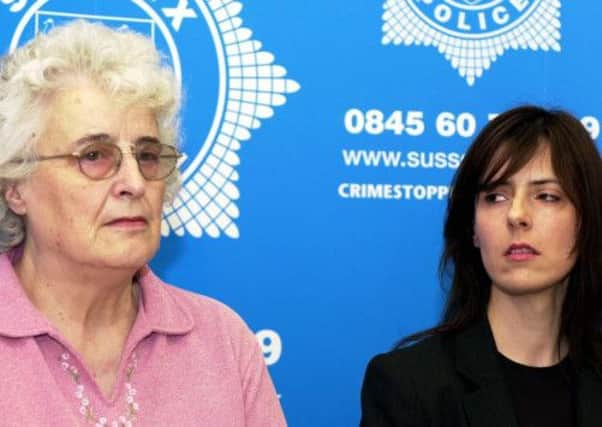Campaigners demand action on net porn following April murder


The schoolgirl’s killer Mark Bridger was sentenced to a whole life term on Thursday after a court was told he kidnapped her, before sexually abusing and murdering her and later disposing of her body near where she lived in Cienws, mid-Wales.
A jury heard Bridger had viewed extreme pornography on the internet in the hours before including online photographs of a young girl and a cartoon depicting the apparent rape of a physically restrained and visibly distressed girl.
Advertisement
Hide AdAdvertisement
Hide AdPolice found indecent images on the computer, as well as pictures of young female murder victims, including Holly Wells and Jessica Chapman, the victims of Soham killer Ian Huntley.
MPs have called for a code of conduct for internet providers to ensure they remove material including images of child sex abuse.
Yesterday Liz Longhurst, who fought for a ban on violent online pornography after her daughter’s murder, said companies such as Google must “get their act together” to tackle the problem.
Her daughter Jane Longhurst, of East Sussex, was murdered by extreme-pornography obsessive Graham Coutts in 2003, prompting her to fight for a ban on images which came into force in 2009.
Advertisement
Hide AdAdvertisement
Hide AdBut she said changes to the law in the wake of her campaign had been implemented only a handful of times and it was down to internet service providers (ISPs) and search engines to stop material from being made available.
Mrs Longhurst said: “What annoys me immensely is that Google won’t block these sites. They say we’ve got to have freedom.
“All I ask them is where was my daughter’s freedom – tell me that.”
She said it was a global problem and attempting to tackle the problem in this country alone was not enough.
Advertisement
Hide AdAdvertisement
Hide Ad“It is really up to the ISPs. They can make it possible,” she said. “The ISPs have to get their act together.”
Musician Coutts, 39, strangled Miss Longhurst, a teacher, with a pair of tights after forcing her into sex, then stuffed her body into a box where he kept it for weeks before setting fire to it.
He had carried out web searches for terms such as “necro”, “rape” and “snuff” and the day before had spent hours looking at images on websites such as “violentpleasures.com” and “rapeaction.com”.
The Old Bailey was told last month how Stuart Hazell, jailed for murdering 12-year-old Tia Sharp, had searched for child porn on the internet.
Advertisement
Hide AdAdvertisement
Hide AdJohn Carr, UK Government adviser on online child safety, said Google’s “moral leadership” was essential to persuading other internet search engine providers to tighten access to hardcore pornography. Mr Carr said: “They are the biggest player in this space in the world. If they did it, I think others would have to follow.”
Phillip Noyes, acting chief executive of the NSPCC, said April’s case addded to growing evidence of a link between child and extreme porn, and committing other serious sexual assaults.
“For some time we have been concerned about the growing number of these obscene images which are becoming more easily available and can fuel the fantasies of offenders like Bridger.
“This case points to the ever-growing evidence there is a worrying link between looking at this vile kind of material and committing other serious sexual assaults.
Advertisement
Hide AdAdvertisement
Hide Ad“April’s death will hopefully lead to effective measures to stamp out this vile trade.”
Google yesterday reissued a statement from Scott Rubin, its director of communications and public affairs, which said: “Google has a zero-tolerance policy on child sexual abuse content.
“We are members and joint funders of the Internet Watch Foundation – an independent body that searches the web for child abuse imagery and then sends us links, which we remove from our search index.
“When we discover child abuse imagery or are made aware of it, we respond quickly to remove and report it to the appropriate law enforcement authorities.”